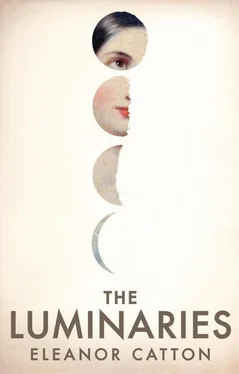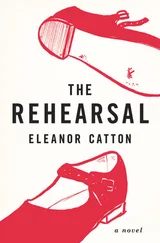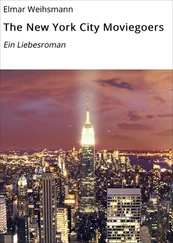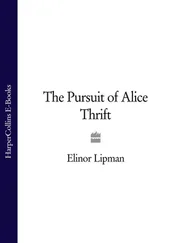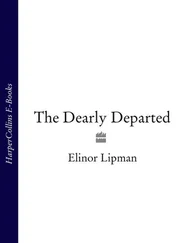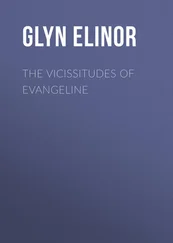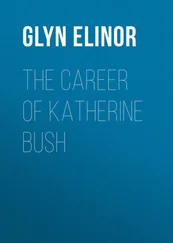‘You’ve not dug before, then.’
‘No, sir.’
‘Never seen the colour?’
‘Only at the jeweller’s—on a watch, or on a buckle; never pure.’
‘But you’ve dreamed it, pure! You’ve dreamed it—kneeling in the water, sifting the metal from the grit!’
‘I suppose … well no, I haven’t, exactly,’ Moody said. The expansive style of this man’s speech was rather peculiar to him: for all the man’s apparent distraction, he spoke eagerly, and with an energy that was almost importunate. Moody looked around, hoping to exchange a sympathetic glance with one of the others, but he failed to catch anybody’s eye. He coughed, adding, ‘I suppose I’ve dreamed of what comes afterwards—that is, what the gold might lead to, what it might become.’
The man seemed pleased by this answer. ‘Reverse alchemy, is what I like to call it,’ he said, ‘the whole business, I mean—prospecting. Reverse alchemy. Do you see—the transformation—not into gold, but out of it—’
‘It is a fine conceit, sir,’—reflecting only much later that this notion chimed very nearly with his own recent fancy of a pantheon reversed.
‘And your inquiries,’ the man said, nodding vigorously, ‘your inquiries—you’ll be asking around, I suppose—what shovels, what cradles—and maps and things.’
‘Yes, precisely. I mean to do it right.’
The man threw himself back into his armchair, evidently very amused. ‘One week’s board at the Crown Hotel—just to ask your questions!’ He gave a little shout of laughter. ‘And then you’ll spend two weeks in the mud, to earn it back!’
Moody recrossed his ankles. He was not in the right disposition to return the other man’s energy, but he was too rigidly bred to consider being impolite. He might have simply apologised for his discomfiture, and admitted some kind of general malaise—the man seemed sympathetic enough, with his strumming fingers, and his rising gurgle of a laugh—but Moody was not in the habit of speaking candidly to strangers, and still less of confessing illness to another man. He shook himself internally and said, in a brighter tone of voice,
‘And you, sir? You are well established here, I think?’
‘Oh, yes,’ replied the other. ‘Balfour Shipping, you’ll have seen us, right past the stockyards, prime location—Wharf-street, you know. Balfour, that’s me. Thomas is my Christian name. You’ll need one of those on the diggings: no man goes by Mister in the gorge.’
‘Then I must practise using mine,’ Moody said. ‘It is Walter. Walter Moody.’
‘Yes, and they’ll call you anything but Walter too,’ Balfour said, striking his knee. ‘“Scottish Walt”, maybe. “Two-Hand Walt”, maybe. “Wally Nugget”. Ha!’
‘That name I shall have to earn.’
Balfour laughed. ‘No earning about it,’ he said. ‘Big as a lady’s pistol, some of the ones I’ve seen. Big as a lady’s—but, I’m telling you, not half as hard to put your hands on.’
Thomas Balfour was around fifty in age, compact and robust in body. His hair was quite grey, combed backward from his forehead, and long about the ears. He wore a spade-beard, and was given to stroking it downward with the cup of his hand when he was amused—he did this now, in pleasure at his own joke. His prosperity sat easily with him, Moody thought, recognising in the man that relaxed sense of entitlement that comes when a lifelong optimism has been ratified by success. He was in shirtsleeves; his cravat, though of silk, and finely wrought, was spotted with gravy and coming loose at the neck. Moody placed him as a libertarian—harmless, renegade in spirit, and cheerful in his effusions.
‘I am in your debt, sir,’ he said. ‘This is the first of many customs of which I will be entirely ignorant, I am sure. I would have certainly made the error of using a surname in the gorge.’
It was true that his mental conception of the New Zealand diggings was extremely imprecise, informed chiefly by sketches of the California goldfields—log cabins, flat-bottomed valleys, wagons in the dust—and a dim sense (he did not know from where) that the colony was somehow the shadow of the British Isles, the unformed, savage obverse of the Empire’s seat and heart. He had been surprised, upon rounding the heads of the Otago peninsula some two weeks prior, to see mansions on the hill, quays, streets, and plotted gardens—and he was surprised, now, to observe a well-dressed gentleman passing his lucifers to a Chinaman, and then leaning across him to retrieve his glass.
Moody was a Cambridge fellow, born in Edinburgh to a modest fortune and a household staff of three. The social circles in which he had tended to move, at Trinity, and then at Inner Temple in his more recent years, had not at all the rigid aspect of the peerage, where one’s history and context differed from the next man only in degree; nevertheless, his education had made him insular, for it had taught him that the proper way to understand any social system was to view it from above. With his college chums (dressed in capes, and drunk on Rhenish wine) he would defend the merging of the classes with all the agony and vitality of the young, but he was always startled whenever he encountered it in practice. He did not yet know that a goldfield was a place of muck and hazard, where every fellow was foreign to the next man, and foreign to the soil; where a grocer’s cradle might be thick with colour, and a lawyer’s cradle might run dry; where there were no divisions. Moody was some twenty years Balfour’s junior, and so he spoke with deference, but he was conscious that Balfour was a man of lower standing than himself, and he was conscious also of the strange miscellany of persons around him, whose estates and origins he had not the means to guess. His politeness therefore had a slightly wooden quality, as a man who does not often speak with children lacks any measure for what is appropriate, and so holds himself apart, and is rigid, however much he wishes to be kind.
Thomas Balfour felt this condescension, and was delighted. He had a playful distaste for men who spoke, as he phrased it, ‘much too well’, and he loved to provoke them—not to anger, which bored him, but to vulgarity. He regarded Moody’s stiffness as if it were a fashionable collar, made in some aristocratic style, that was unbearably confining to the wearer—he saw all conventions of polite society in this way, as useless ornamentations—and it amused him, that the man’s refinement caused him to be so ill at ease.
Balfour was indeed a man of humble standing, as Moody had guessed. His father had worked in a saddlery in Kent, and he might have taken up that mantle, if a fire had not claimed both father and stable in his eleventh year—but he was a restless boy, with frayed cuffs and an impatience that belied the dreamy, half-focused expression he habitually wore, and the dogged work would not have suited him. In any case, a horse could not keep pace with a railway car, as he was fond of saying, and the trade had not weathered the rush of changing times. Balfour liked very much to feel that he was at the vanguard of an era. When he spoke of the past, it was as if each decade prior to the present year was an ill-made candle that had been burned and spent. He felt no nostalgia for the stuff of his boyhood life—the dark liquor of the tanning vats, the rack of hides, the calfskin pouch where his father stored his needles and his awl—and rarely recalled it, except to draw a comparison with newer industries. Ore: that was where the money lay. Coalmines, steelworks, and gold.
He began in glass. After several years as an apprentice he founded a glassworks of his own, a modest factory he later sold for a share in a coalmine, which in due course was expanded to a network of shaft mines, and sold to investors in London for a grand sum. He did not marry. On his thirtieth birthday he bought a one-way ticket on a clipper ship bound for Veracruz, the first leg of a nine-month journey that would take him overland to the Californian goldfields. The lustre of the digger’s life soon paled for him, but the ceaseless rush and hope of the fields did not; with his first dust he bought shares in a bank, built three hotels in four years, and prospered. When California dried he sold up and sailed for Victoria—a new strike, a new uncharted land—and thence, hearing once again the call that carried across the ocean like a faery pipe on a rare breeze, to New Zealand.
Читать дальше
